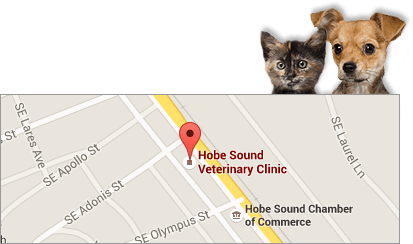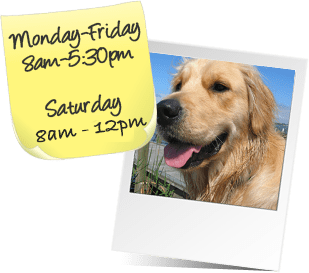Your retriever mix Jackson would make an excellent fitness coach. He seems especially pleased when he makes you work up a sweat. Several times daily, your three-year-old dog hauls you out for a potty walk. After sniffing briskly along the sidewalk, he takes a good run around the block. When you return home, you’re out of breath from the workout. You’d like your walks to be more enjoyable, so your Jupiter Island, FL vet has referred you to a dog trainer who conducts obedience classes. Before enrolling Jackson in a session, watch the instructor in action.
Spotless, Secure Facility
Eighty-pound Jackson looks for every chance to bend – or even break – the rules. Because he’ll probably try to jailbreak the training center, you’re happy that the facility has heavy-duty exterior doors. The trainer has also posted a sign requiring proof of current vaccinations before students can join the class.
Look for an uncluttered training room with a clean floor. Because students could have a potty accident, she should stock disinfectant and paper towels. Pet parents want nicely maintained bathrooms that contain toilet paper, soap, towels, and cleaning supplies.
Canine/Human Partnerships
Because Jackson needs a training partner, you (or another well-known family member) will be his obedience class buddy. If your pooch consistently hears commands from one person, the training is more likely to produce desirable results.
Hopefully, six or fewer students will participate. This should enable the instructor to provide each pooch with one-on-one training time.
Respect-Based Training
A seasoned dog trainer achieves results with respectful training aids such as flat collars, head halters, and harnesses. She might also use treats and toys. Avoid someone with negative training aids such as prong, choke, or electronic collars.
No Punishment Necessary
A skilled, confident trainer speaks in a normal voice. Don’t patronize an instructor who yanks the dogs’ leashes or screams at them. If she hits, kicks, or otherwise abuses a trusting student, walk out immediately.
After observing the class, learn more about the instructor’s qualifications. If she has joined a dog training organization, she’s likely committed to maintaining (and improving) her skills. If you’re favorably impressed, sign Jackson up for a class.
Our Advice on Digging Up a Good Dog Trainer in 2025
What are the signs of a high-quality dog training facility?
A high-quality dog training facility’s environment should be clean, secure, and well-organized. It should have sturdy exterior doors to prevent escapes, and the training area must be free of clutter with a clean floor, indicating good maintenance. Essential supplies like disinfectant and paper towels should be readily available for accidents. Additionally, the facility must require proof of current vaccinations for all canine students, ensuring a safe and healthy environment. Bathrooms should also be well-maintained for pet parents, reflecting the facility’s overall attention to detail and care.
Why is it essential for dog owners to be involved in their pet’s obedience training?
Involvement in your dog’s obedience training is crucial for several reasons. Firstly, it strengthens the bond between you and your pet, fostering trust and understanding. When owners participate, they learn how to effectively communicate with their dogs, ensuring consistency in commands and behavior expectations. This consistency is critical to successful training, as dogs respond best to familiar cues and handling. Additionally, owner involvement helps reinforce learned behaviors at home, making the training more effective and long-lasting. It’s not just about training the dog but educating the owner, creating a harmonious living environment for both.
What are the characteristics of respect-based dog training methods?
Respect-based dog training methods focus on positive reinforcement and trust-building between the dog and the trainer. These methods use rewards like treats, praise, and play to encourage desired behaviors instead of punishment or fear-based tactics. Key characteristics include using gentle training aids such as flat collars, head halters, or harnesses, and avoiding harsh tools like prongs or electronic collars. Training sessions should be consistent, patient, and tailored to the dog’s needs and temperament. This training approach fosters a positive learning environment, boosts the dog’s confidence and willingness to learn, and strengthens the bond with their human companions.
Why should dog owners avoid trainers who use punishment or negative reinforcement?
Dog owners should avoid trainers who use punishment or negative reinforcement because these methods can lead to fear, anxiety, and aggression in dogs. Punishment-based techniques often break the dog’s and owner’s trust, hindering the learning process. Additionally, such methods can escalate behavioral problems rather than resolve them. Research shows that positive reinforcement strategies, which reward desired behaviors, are more effective and promote a healthier, more trusting relationship. Dogs trained with kindness and respect are generally happier, more confident, and more responsive, leading to a better overall outcome for both the pet and the owner.
What should you look for in a dog trainer’s qualifications and professional affiliations?
When selecting a dog trainer, looking for qualifications and professional affiliations that indicate a commitment to ethical and effective training methods is essential. Ideally, the trainer should have formal education in animal behavior or a related field. Certifications from recognized organizations like the Certification Council for Professional Dog Trainers (CCPDT) or the International Association of Animal Behavior Consultants (IAABC) are also significant indicators of professionalism and expertise. Additionally, affiliation with reputable bodies, such as the Association of Professional Dog Trainers (APDT), suggests ongoing education and adherence to industry standards. These credentials ensure the trainer is knowledgeable, skilled, and up-to-date with the latest humane training practices.
When Jackson next visits your Jupiter Island, FL vet, he should be a cooperative canine with good manners. If your dog needs structure, contact us for expert assistance.





